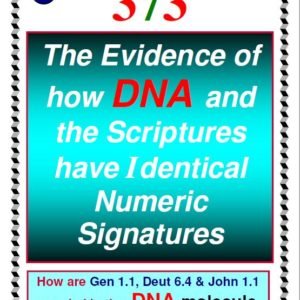I. INTRODUCTION.
• Revelation has been progressive.
• Man’s understanding of the Bible progressive also.
• The Kingdom of God.
• The spiritual nature of the Kingdom.
• A world-wide judgment yet to come.
II. THE EVIDENCE FROM THE EPISTLES.
• 1 Thessalonians
• 2 Thessalonians
• I Corinthians
• Romans
• Philippians
• The Pastoral Epistles
• I Peter
• 2 Peter
• James
• 1 John
• Hebrews
• The inference to be drawn
III. THE EVIDENCE FROM THE GOSPELS.
• Matt24., Mark 13., Luke 21. “At hand.”
• John 9, herald of speedy judgement.
• Before their ministry ended.
• Until the end of the Jewish age.
• At the end of the Jewish age.
• White already to harvest.
• Within the lifetime of some who listened.
• Speedily.
• Within the lifetime of some of the apostles.
• Within the lifetime of John.
• ” The hour cometh – and now is.”
• ” Now is a judgment of this world.
• ” Weep for yourselves and for your children”.
• Within the lifetime of His judges.
• ” In the near future”.
8
• Corroborative statements.
• The inference to be drawn.
IV. THE FACTS RE-STATED
V. THE SILENCE 0F HISTORY
• The hiatus: 70-150 A.D.
• The cause of the hiatus
• The predicted secrecy of the event
• The necessary powers of perception
• The narrow scope of the Advent
• Three sections of humanity
• The fact itself is certain
VI. HOW THE EVENT AFFECTED COUNTRIES
OUTSIDE OF PALESTINE
VII HOW CHRISTIANITY WAS PERPETUATED.
• The unwatchful Christian,
• The apostle John
• The New Testament
• A further Note on John 21.21-23
VIII. THE HIDING OF THE TRUTH
IX. OTHER DIFFICULTIES
• Old Testament prophecies
• Luke 21.21
• “Every eye shall see Him”
• The restoration of all things
• “Blessed is He that cometh”
X. THE PARABLE OF JUDGMENT (Matt. xxv.)
• Was realised in 70 A.D.
• “All the nations”
• The division into two classes
• The test of character
• The severity of the punishment
• The exceptional wickedness of that generation
• The permanent significance of the parable
9
• (1) It increases the certainty of Retribution
• (2) The error of Universalism. Some men for ever lost
• (3) Being burnt up as refuse
• (4) Yet many other degrees of guilt and punishment
• The error of Conditional Immortality
• The Wider Hope firmly established
XI. THE REVELATION
• The date
• Fixed by the internal evidence
• (1) Why written in cipher
• (2) Jerusalem / temple still in existence
• (3) Parallels to the teaching of Jesus
• (4) To be immediately fulfilled
• (5) Referred to in Hebrews and 1 Peter
XII. THE REVELATION CONTINUED.
• The plan of the book
• The seven seals
• The seven trumpets
• The seven mystic figures
XIII. THE REVELATION CONTINUED.
• The beast said its number
• The harvest and the vintage
• Babylon probably Jerusalem
• The binding of Satan
• The first resurrection
• The now heavens and the new earth
XIV. CONSEQUENCES.
• (1) Our duty as Christians in relation to social and political
movements
• (2) The early date of the Now Testament
• (3) The divinity of Jesus
• (4) “Where are we now?”
10
XV. CONSEQUENCES CONTINUED.
• (5) The Millennium
• (6) Our relation to the Kingdom of Grid. The first resurrection
• ontinuous in its results. Death is to us what the Second Advent
• as to t he first Charstians
• (7) Christianity in its primitive purity and simplicity
• (8) The Sabbath
• (9) “Why have miracles ceased ? ” The exceptional character of
• he apostolic age
• (10) Faith healing and prayer
• (11) The Sermon on the mount
XVI. CONSEQUENCES CONTINUED.
• (12) The Lord’s prayer
• (13) Lawful variety in, Church systems
• (14) The sudden break in early Church history. The fate of the
apostles ” Did Lazarus die a second Time
• (15) Apostolic succession. The work of the apostle, unique, fully
accomplished and incapable of repetition. Their qualifications
and credentials also unique Those worthy to succeed the
apostles were withdrawn from earth to heaven alone, with them
The apostles have never relinquished their position of preeminence
over the Church.
• (16) The visible unity of Christendom
(17) Other CONSEQUENCES
APPENDICES
• ” The End of the Age.” Matt 24.3
• Sir Edwin Arnold on the Imperfection of Man’s ordinary powers
of perception
• ” The Lord’s Day.” Rev 1.10
• The Fragmentary Character of History
• ” The Kingdom of God
• Prayer and the Holy Spirit
OTHERS WHO TEACH A PAST SECOND COMING
IS FOUND IN THE BIBLIOGRAPHY





